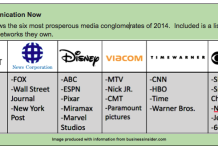
College is associated with long hours of studying and partying – and being poor and hungry, too. It?costs a lot of money, after all. Because of these costs, students often can’t?afford many luxuries or even necessities while attending college. However, some schools are using a smartphone app?to help out struggling students. Two universities are providing hungry students with technology (and which rewards them for NOT using technology) to ease the financial burden of buying meals.
Chico State and Penn State are using a new?smartphone app called Pocket Points. Encouraging them?to lock and not use their phones during classes, the students can earn points – one for every 20 minutes the phone is locked while the app is running. The greater number of students using the app at the same time means the greater the points being earned and paid out.
Students are able to use the points they earn to receive free food, student bookstore discounts, and discounts on college apparel, as well. To prevent cheating, such as trying to claim points for?having a phone locked while not on campus, there are geographical limitations to where the app works. Restaurants near the campuses are also letting students use the points at their businesses, too.
College students aren’t known for making healthy food choices. Researchers at Oregon State University surveyed?600 students about their eating habits. The results revealed that most students were not eating even one serving of fruits or vegetables a day. Male students often ate more fatty foods than females, while female students would regularly eat breakfast more often than their male counterparts. While guys?averaged five servings a week of fruits and vegetables, females would only eat four. The bad food choices may be due to lack of money; often, fruits and vegetables cost more and go by the wayside when you are poor.
Everyone has heard of the “Freshman 15” -?college freshmen gaining weight from eating too much of the wrong things. Students are too busy studying, working, and doing homework to consider how they eat. They’re on fixed and limited incomes, too, if any income at all, which further restricts their access to healthy foods. Unfortunately, the cheaper and more affordable food is the kind that isn’t necessarily the healthiest. (Eating healthy is a nationwide problem, too, and for the same reasons. Poor people everywhere have trouble affording healthy food.)
The Pocket Points app is helping college students make the most of their financial resources. Along with letting them earn?points for food and other needed items, there is another benefit to having their phones locked. Students will pay more attention in class instead of checking their phones. College students are paying a lot for their education. An app to help lighten that cost, and at the same time keep phones quiet in the classroom, is a good idea.





